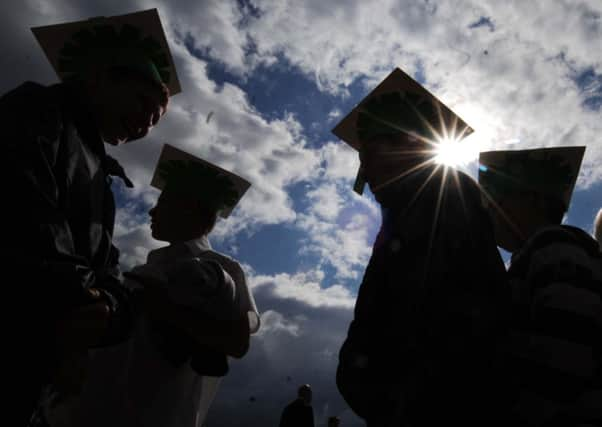University graduates face paying fees off when they are in their fifties


A study published today suggests that almost three-quarters of graduates will have at least some of their loan written off under the new regime, with the average amount wiped out standing at around £30,000.
It would mean former students could still be paying off their fees when their own children are considering university.
Advertisement
Hide AdAdvertisement
Hide AdThe Sutton Trust, which commissioned the research, said the findings showed that the new fee system could leave professionals such as teachers in a position where they have to find cash to cover loan repayments at a time when their family and living costs, such as mortgage payments, are at a peak.
Under major reforms of university finances, tuition fees were raised to a maximum of £9,000 a year in 2012, almost treble the previous fee which stood at around £3,000.
Eight out of the ten universities in Yorkshire now charge the maximum amount with only Huddersfield and Leeds Trinity charging less.
Students do not start repaying their loans until after they have graduated and are earning at least £21,000 a year, at a rate of nine per cent on all income above this threshold. This compares with a £15,795 threshold in 2012 for the old system. Debts are written off after 30 years.
Advertisement
Hide AdAdvertisement
Hide AdThose studying for a degree under the new regime also pay an above-inflation interest rate of up to three per cent, which begins while they are still at university, whereas previously there was no real rate of interest.
The study, by researchers at the Institute for Fiscal Studies (IFS) examined the two systems to assess the impact of the new student loan system which was brought in at the same time as higher tuition fees in 2012.
It found that a typical student will now leave university with more than £44,000 worth of debt from fee and maintenance loans - without accruing interest after graduation - around £20,000 more than they would have done under the old system.
The vast majority of this increase is down to students borrowing more to cover higher tuition fees.
Advertisement
Hide AdAdvertisement
Hide AdIn cash terms, the researchers estimate that graduates will now repay a total of £66,897 on average - equating in real terms to £35,446 on average in 2014 prices.
While the lowest earning graduates - those whose salaries rarely top £21,000 - will pay back less under the new regime, those who earn higher salaries will pay back substantially more.
And the decision to bring in a real, above-inflation interest rate on student loans means that almost half (45 per cent) of graduates will pay back more than they borrowed in real terms, the report adds. But despite this the vast majority will not return their loan in full. The study says: “The average amount written off will be substantial - about £30,000.”
The researchers say under the new system, most graduates will repay slightly less until they are in their mid-30s than they would have done under the old regime, but will then pay more in their 40s and early 50s.
Advertisement
Hide AdAdvertisement
Hide AdThe study says an “average” teacher - who works every year after graduating a would repay £25,000 in today’s prices under the old system, finishing their repayments when they are 40. Under the new system, they would pay back around £42,000 in 2014 prices, but would not finish paying back their loan by the time they are in their early 50s.